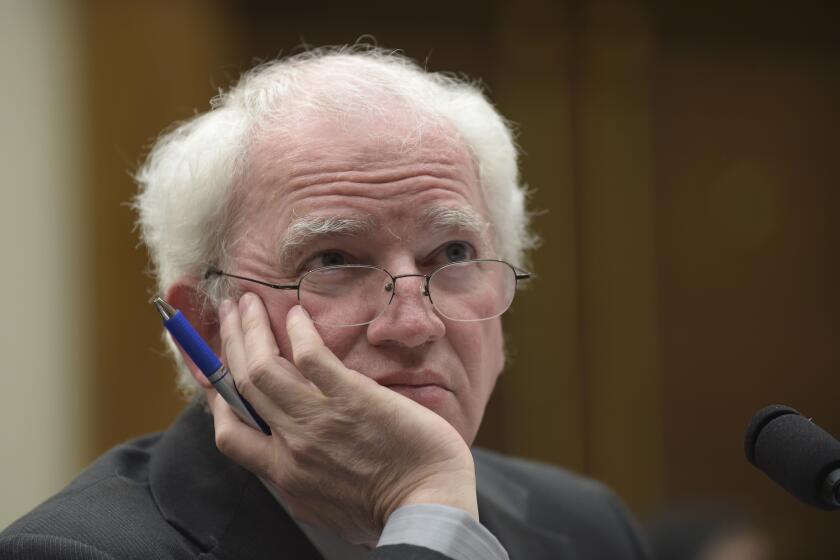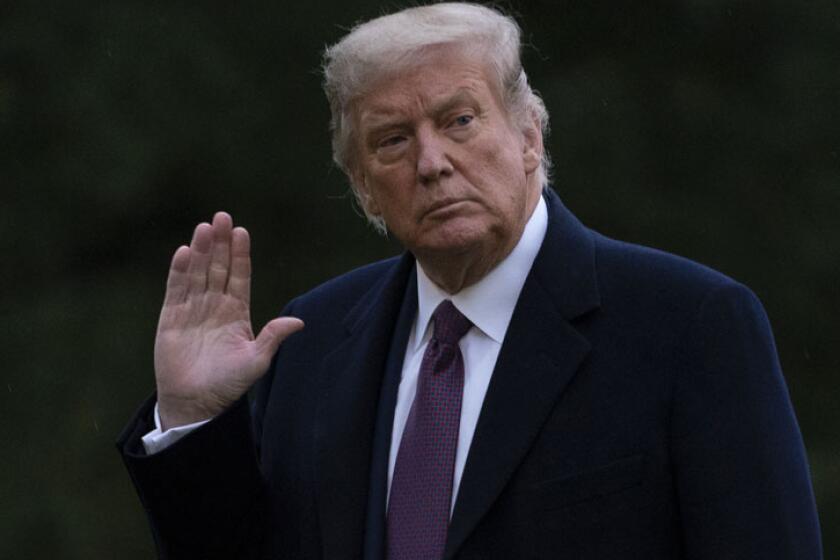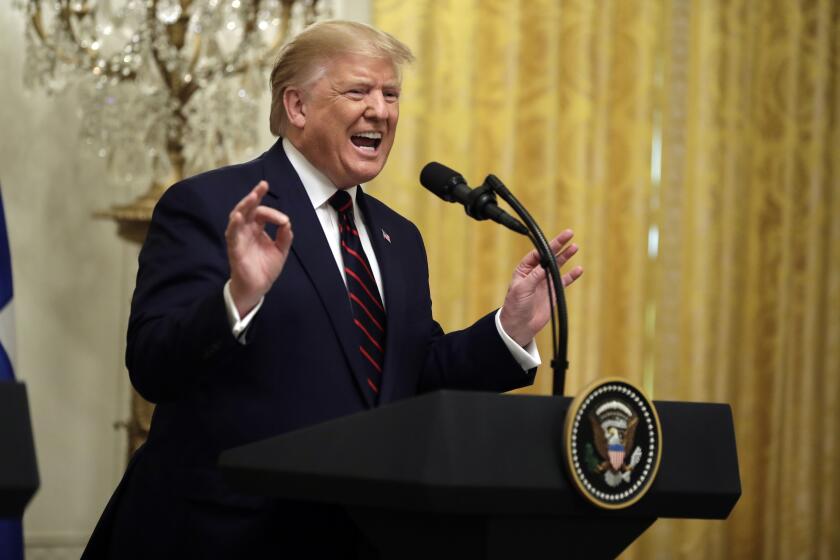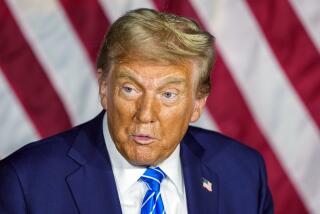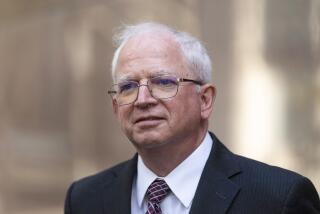Jan. 6 committee says Trump ‘may have engaged in criminal acts’ to overturn election
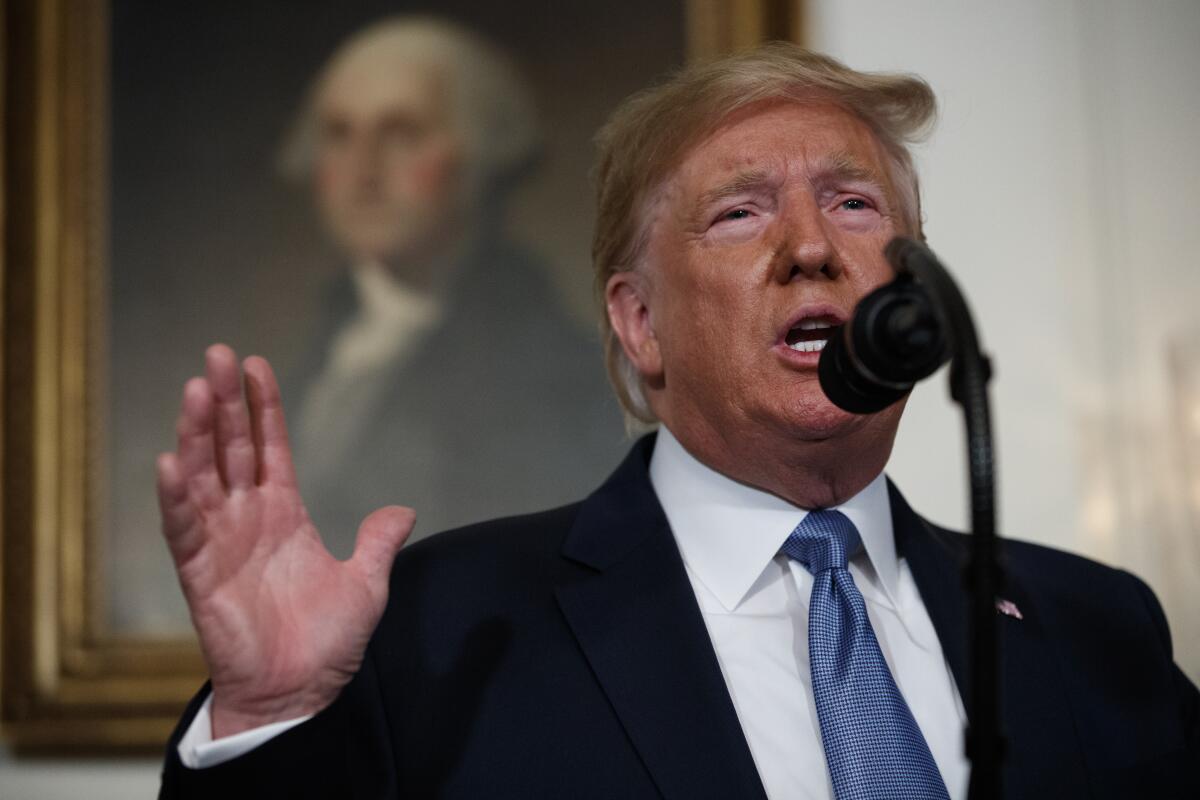
- Share via
WASHINGTON — The House Jan. 6 select committee says former President Trump and his campaign may have tried to illegally obstruct Congress’ counting of electoral votes and “engaged in a criminal conspiracy to defraud the United States.”
In a federal court filing Wednesday, the committee alleges that emails it is trying to obtain will show that Trump himself violated multiple laws by attempting to prevent Congress from certifying his defeat in the 2020 election.
“The Select Committee also has a good-faith basis for concluding that the President and members of his Campaign engaged in a criminal conspiracy to defraud the United States,” the committee wrote in a filing submitted in U.S. District Court in the Central District of California.
The filing includes excerpts of nearly a dozen depositions from top aides to Trump and Vice President Mike Pence. Several recount that Trump was repeatedly informed that he had lost the election and that his fraud claims were unfounded, but that Trump rejected the facts and continued to mislead his supporters and demand a strategy for overturning the results.
The filing was made in response to former Trump lawyer John Eastman’s challenge of a subpoena from the committee, in which he said that thousands of emails held by his former employer Chapman University are protected by attorney-client privilege. He became a key legal advisor to Trump in the weeks after his loss to Joe Biden.
John Eastman, a retired Chapman University dean who became a legal advisor to President Trump, is under investigation by the State Bar of California.
Eastman wrote two legal memos that advised Pence he could declare the results in several states were disputed and therefore their electoral votes would go uncounted. Doing so could also have potentially opened the door for several state legislatures to recast their votes for Trump.
Pence, and many constitutional scholars, rejected the argument the vice president had that authority during the largely ceremonial certification of the electoral college votes.
A spokesperson for Trump did not immediately return a request for comment. A call to Eastman’s attorney was not immediately returned either.
The U.S. Supreme Court rejects President Trump’s effort to block release of documents from his administration to the Jan. 6 House Select Committee.
The committee argues that communications between an attorney and client are not protected from disclosure if the client is seeking advice on committing a crime.
“The facts we’ve gathered strongly suggest that Dr. Eastman’s emails may show that he helped Donald Trump advance a corrupt scheme to obstruct the counting of electoral college ballots and a conspiracy to impede the transfer of power,” committee Chair Bennie Thompson (D-Miss.) and Vice Chair Liz Cheney (R-Wyo.) said in a statement.
In its filing, the committee also argued that Eastman was more than just a lawyer. “Plaintiff’s role was not simply as an advisor; he spoke at the rally on the morning of January 6, spreading proven falsehoods to the tens of thousands of people attending that rally,” it states.
The House Oversight Committee wants more information about destroyed presidential records and whether the Trump administration intentionally disregarded the law.
The committee also disputed whether Eastman was actually hired to represent Trump, because the letter he provided as evidence did not bear Eastman’s or Trump’s signatures. The committee argued that “the lack of signatures is critical because the letter itself states that it becomes operative ‘[u]pon the proper signatures by all parties.’”
The State Bar of California announced Wednesday it is investigating whether Eastman violated laws while advising Trump on how he could overturn his election defeat.
More to Read
Get the L.A. Times Politics newsletter
Deeply reported insights into legislation, politics and policy from Sacramento, Washington and beyond. In your inbox three times per week.
You may occasionally receive promotional content from the Los Angeles Times.

